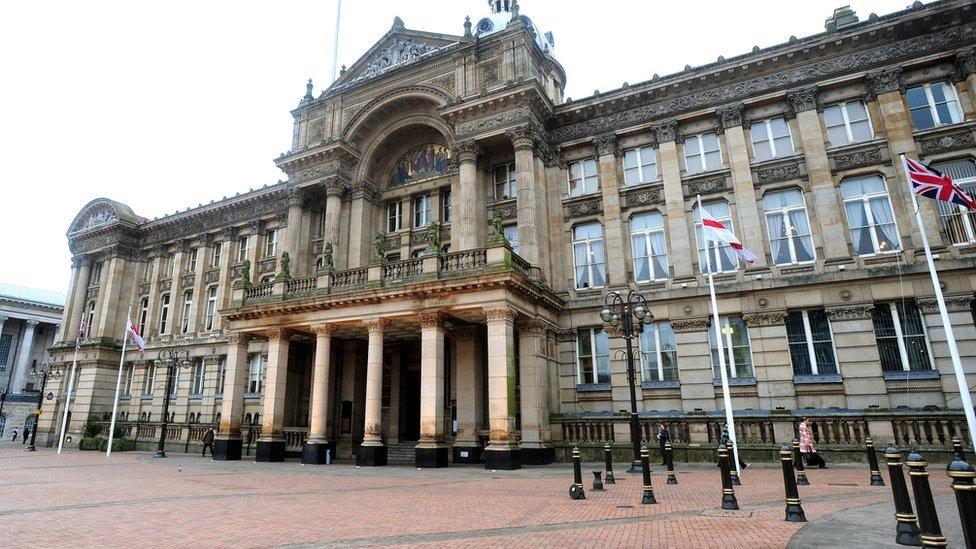West Midlands mayor 2017 result: Conservatives seal narrow victory
- Published
West Midlands mayor Andy Street outlines his vision for role
The Conservatives' Andy Street is the new metro mayor for the West Midlands.
He defeated Labour's Sion Simon in a closely fought count, by 3,766 votes. Voting had gone into a second round.
The former John Lewis boss will now lead a population of nearly three million across Birmingham, the Black Country and Coventry.
Addressing the count at Birmingham's Barclaycard Arena, Mr Street said it was the beginning of a "new, urban Conservative agenda".
The result could be seen to defy the widespread perception that the West Midlands is and always will be "a Labour area", says BBC Midlands Today political editor Patrick Burns.
Election 2017: Full results from across England
Mr Street polled a total of 238,625 votes, compared to his Labour rival's 234,862. Turnout was 26.8%
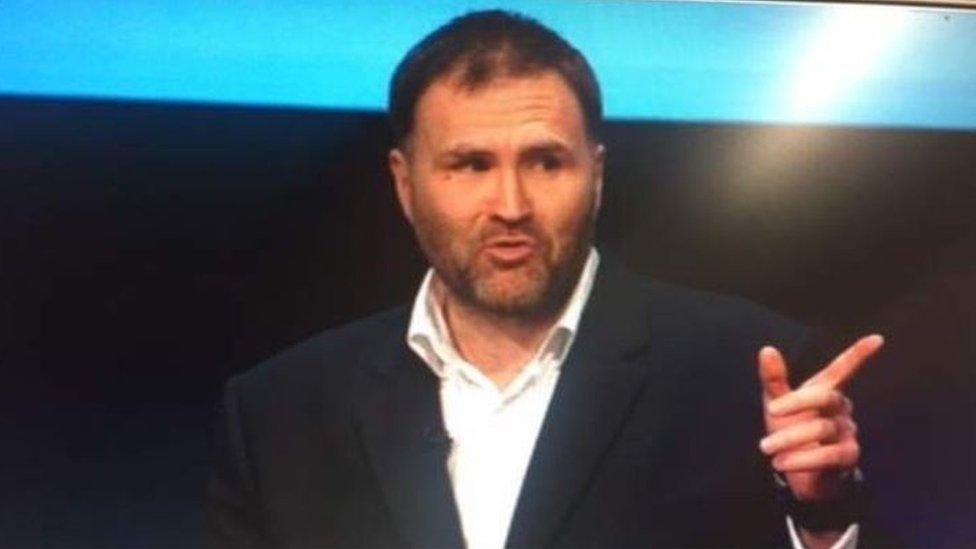
Sion Simon said after his defeat that Labour, nationally, was out of touch
Mr Street stepped down from his role as managing director at the John Lewis chain to run his mayoral campaign.
He has pledged to eradicate youth unemployment, deliver 25,000 new houses and to invest in public transport.
He added he felt "very humbled" by the "huge responsibility" he was taking on.
For more on this and other stories Birmingham and the Black Country
After a "little celebration and a rest" he would be talking to Prime Minister Theresa May about two subjects in particular - "making a success of Brexit" and telling her that the West Midlands "is a region that is going places" and she must invest to make it even more successful.
"The encouraging thing for us, which I said at the beginning of the campaign, is that we should reach every community of the West Midlands, we did respectably well in every borough," he said of the results.
"The job of mayor is to pull the leadership of the whole region together."
Mr Simon, currently one of the West Midlands' Members of the European Parliament, said the campaign had been run in a "spirit of decency" and added Labour nationally, was out of touch.
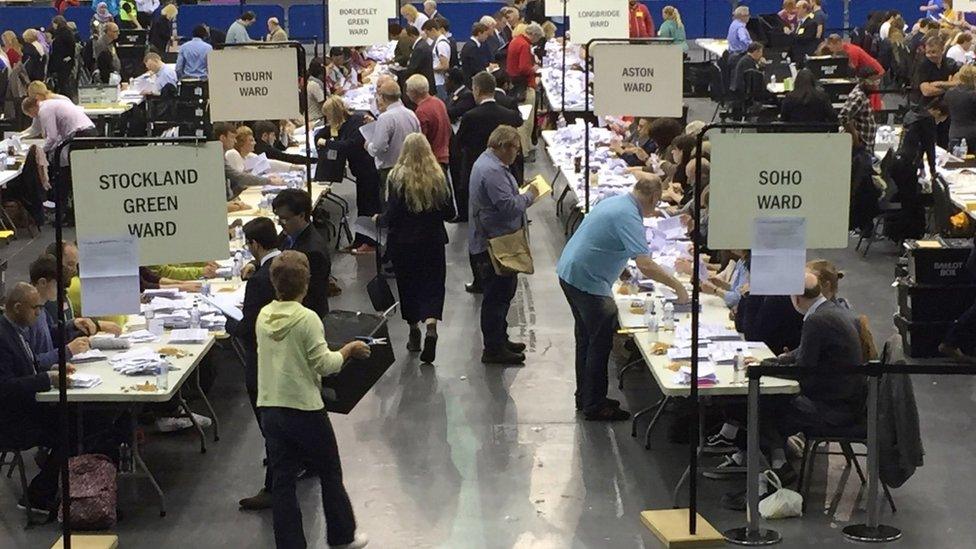
The battle came down to the result from Birmingham which was declared at about 16:45 BST
"What we have heard coming from the doorsteps time and time again during this campaign is that traditional Labour supporters tell us that they're not feeling confident enough that we, in Labour, are strong enough with traditional Labour values."
However, the former Birmingham Erdington MP refused to blame leader Jeremy Corbyn and did not rule out standing again in three years' time.
Mr Street will have powers over economic development, education and skills, housing and transport and head the new West Midlands Combined Authority (WMCA).
The mayor will control a £1.1bn investment fund over 30 years, or £36m a year. The costs of the mayor's office itself will be covered by this fund until April 2018.
By about 14:00 BST when four out of seven councils had declared, it was clear neither candidate could reach the necessary 50% mark to win outright after the first round, and the result would be decided after second preferences were counted.
At that point, Labour's Mr Simon held a 23,000 vote lead over his Tory rival.
The individual results after the first round showed Mr Simon took Coventry, Wolverhampton, Birmingham and Sandwell and Mr Street came top in Walsall, Dudley and Solihull.
In Sandwell, out of the approximate 9,000 people who voted in first round, only half cast valid second preferences, the BBC's Phil Mackie reported.
The first region-wide count put Mr Street ahead on 216,280 with Mr Simon just behind on 210,259.
Beverley Anne Nielsen for the Lib Dems was third with 30,378 and UKIP's Pete Durnell a close fourth with 29,051.
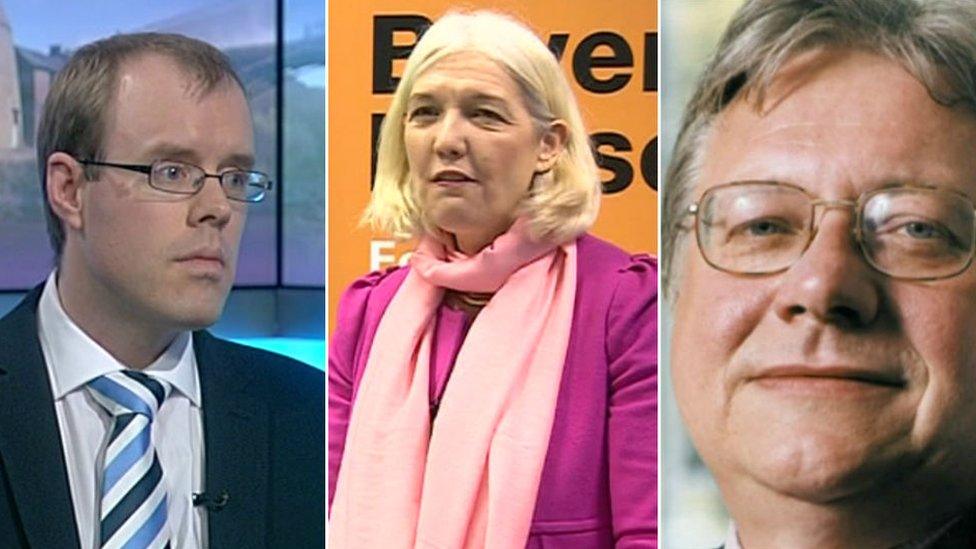
James Burn from the Green party, Beverley Anne Nielsen from Lib Dems, and Communist Graham John Stevenson were among six candidates
More than 7,000 ballots had been spoiled, officials said.
Results from the second round vote, showed Mr Street won in Dudley, Walsall and Solihull and Mr Simon in Sandwell, Wolverhampton, Coventry and Birmingham.
After five council declarations in the second round, Mr Street had a slender 6,454 lead over Mr Simon.
Birmingham was the last to declare at about 16:45 BST and that confirmed the win for Mr Street.

Results from first count:
James Burn Green party - 24,260
Pete Durnell UKIP - 29,051
Beverley Anne Nielsen Lib Dem - 30,378
Sion Simon - 210,259
Graham John Stevenson Communist - 5,696
Andy Street Conservative - 216,280
Results from second count:
Sion Simon Labour - 24,603
Andy Street Conservative - 22,348

Who is Andy Street?
The businessman quit his £800,000 a year role as the boss of high street giant John Lewis to run for mayor.
He has pledged to use the business skills he has learnt at the retailer to help drive investment and create jobs in the region.
He wants Birmingham to host the 2026 Commonwealth Games.
The former managing director has received the backing of the party's leadership with Theresa May telling the Conservative Party Conference in October: "A success in business running John Lewis. An action man in Birmingham, playing his part in transforming this city. A man to get things done, the future Mayor of the West Midlands - Andy Street."
Mr Street, who is unmarried, read politics, philosophy and economics at Oxford and became president of the University Conservative Association.
He originally wanted to be a social worker.
He is well known in the West Midlands, having served as the chair of the Greater Birmingham and Solihull Local Enterprise Partnership (GBSLEP) - which brings together business and political leaders to channel Government investment in business and transport infrastructure in the region.
His high-profile campaign is reported to have cost about £1m.

Analysis - Nick Watson, BBC Sunday Politics producer:
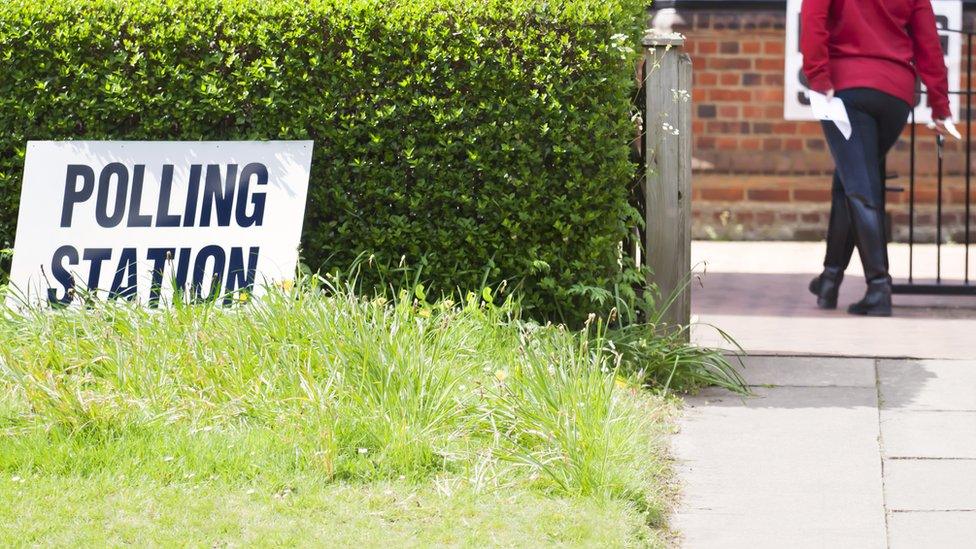
Has a lack of council elections in the West Midlands had a knock-on effect on voter turnout?
Andy Street's election as West Midlands mayor was one of the stand out victories for the Conservatives in this round of local elections. Less impressive, though, was the turnout.
Little more than one in four voters in the West Midlands bothered to turn out to vote. Part of the reason for this is that the mayoral election was held in isolation. There were no local council elections taking place on the same day which may have helped elevate the turnout above a disappointing 26%.
Also, there has been no great appetite to have metro mayors in the West Midlands. Referenda held in both Birmingham and Coventry in recent years rejected the idea.
The elections took place after the government warned West Midlands political leaders that they would not get full devolution unless they accepted the role of metro mayor.
Critics have said this amounts to devolution being imposed on the West Midlands from above.
One of Mr Street's primary tasks may therefore be to convince a sceptical public that they need a metro mayor at all.

- Published5 May 2017
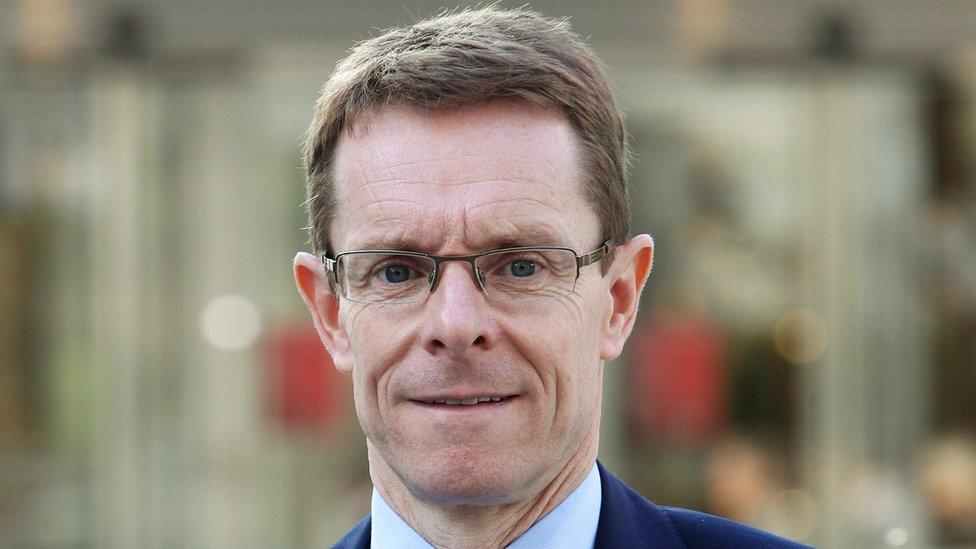
- Published6 April 2017
- Published4 April 2017
